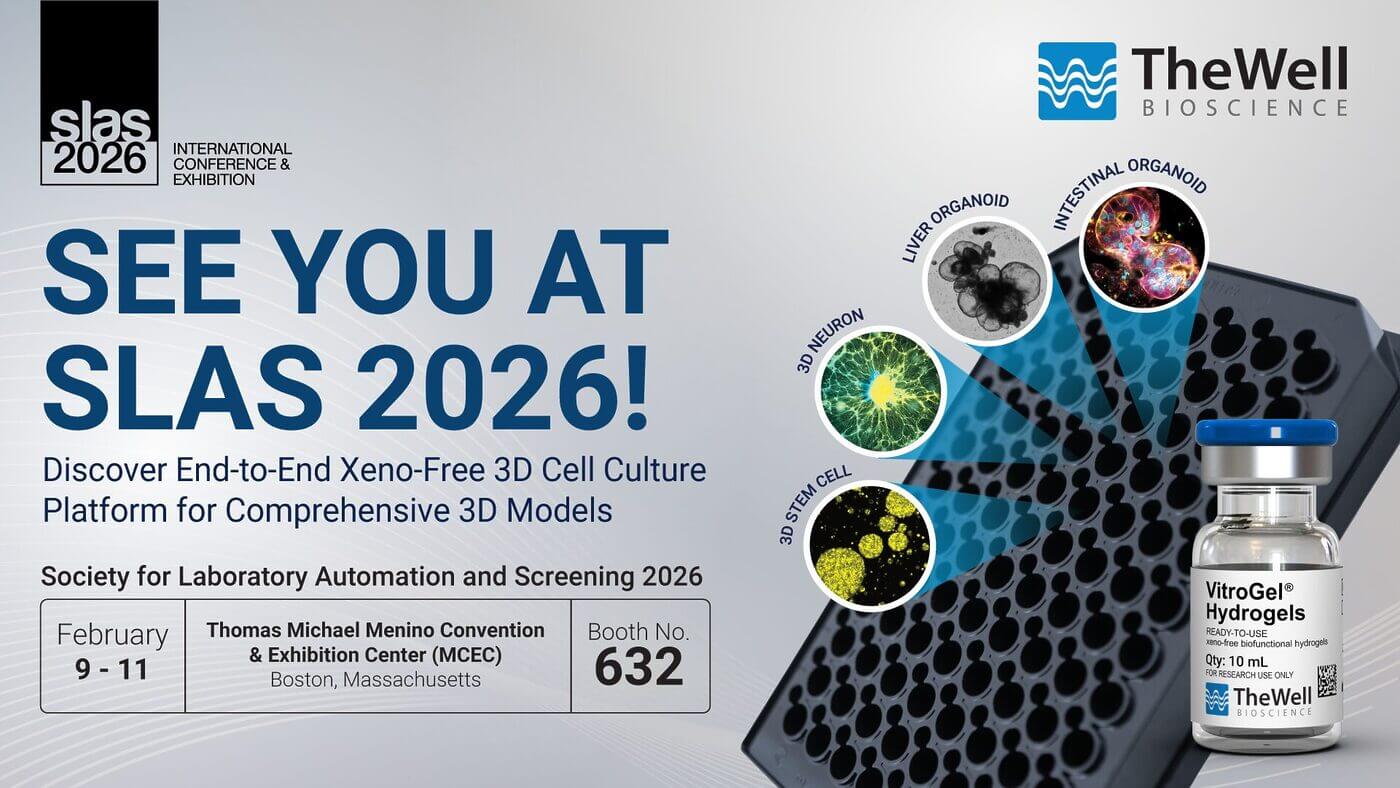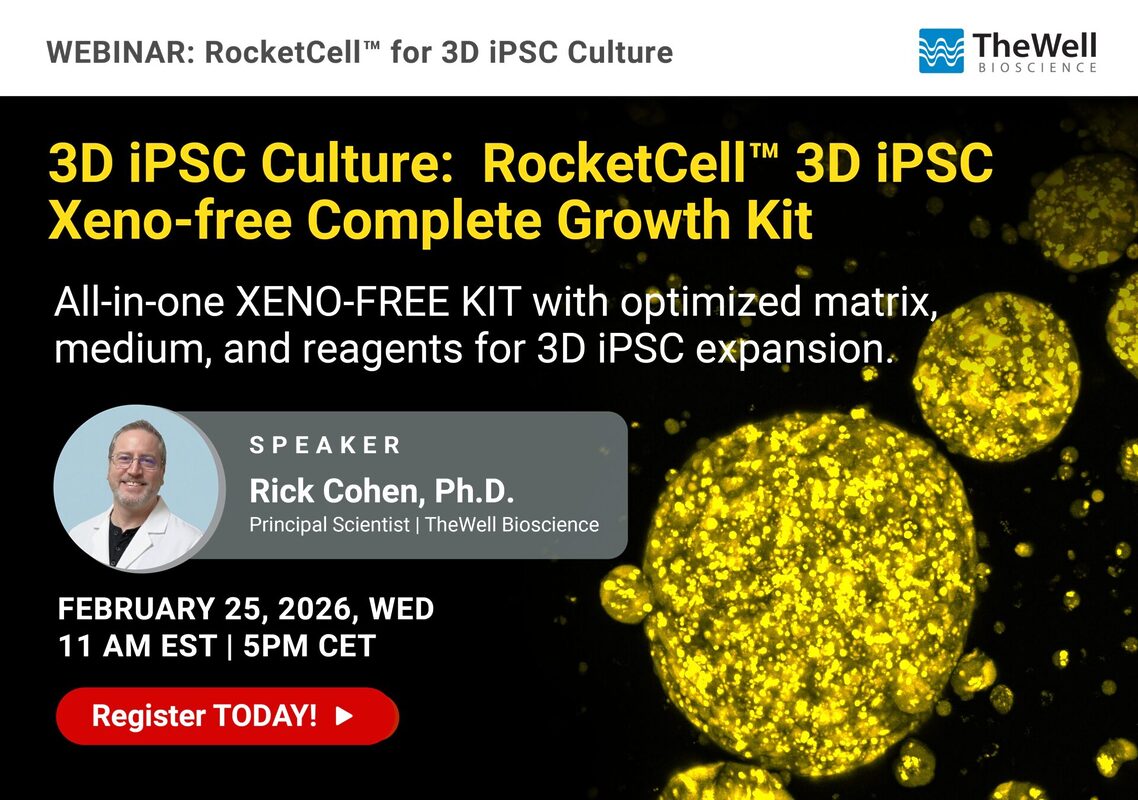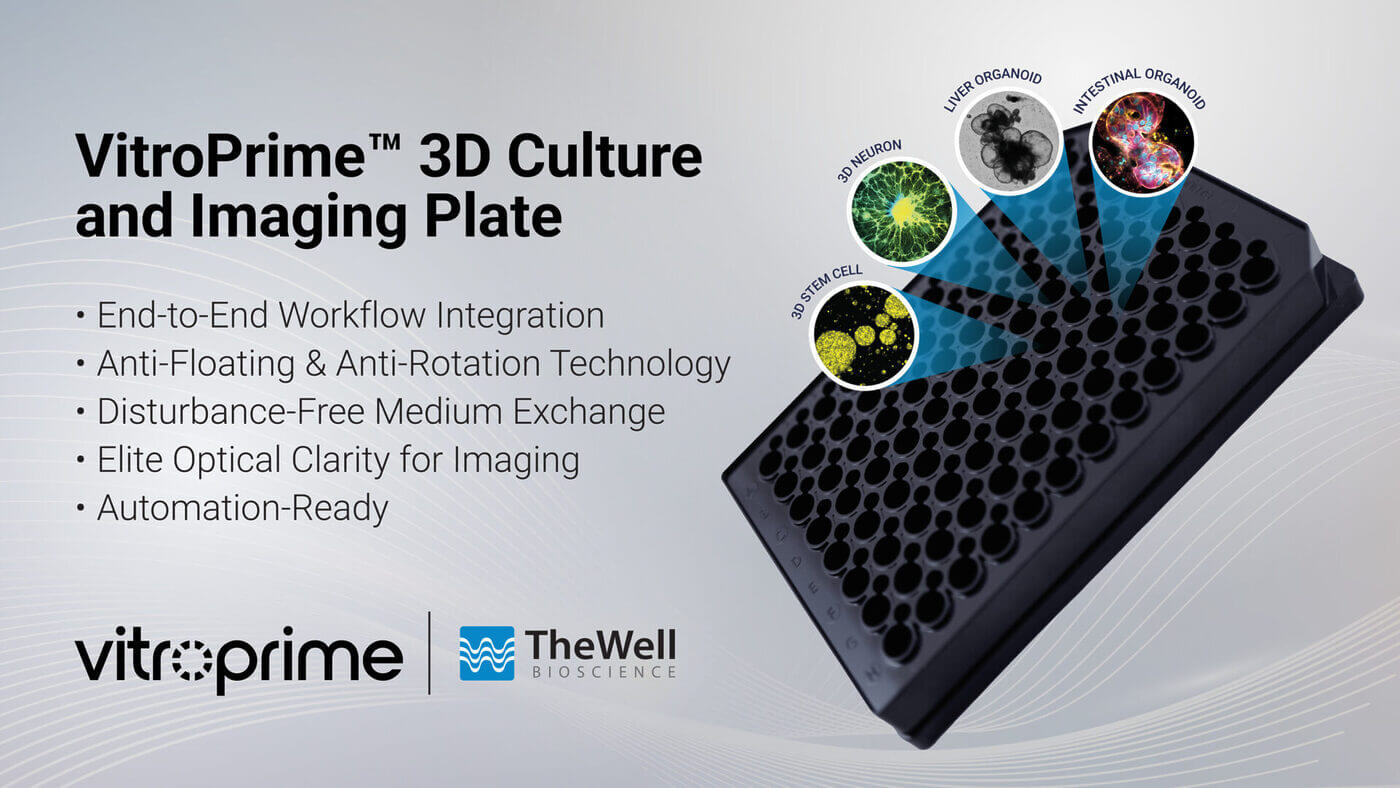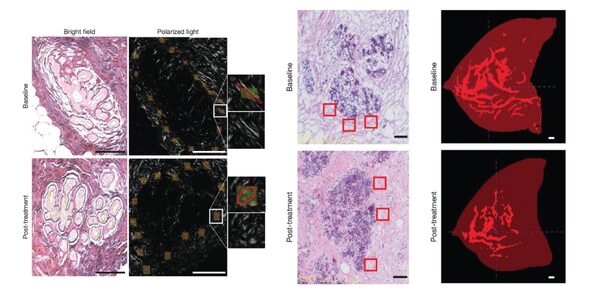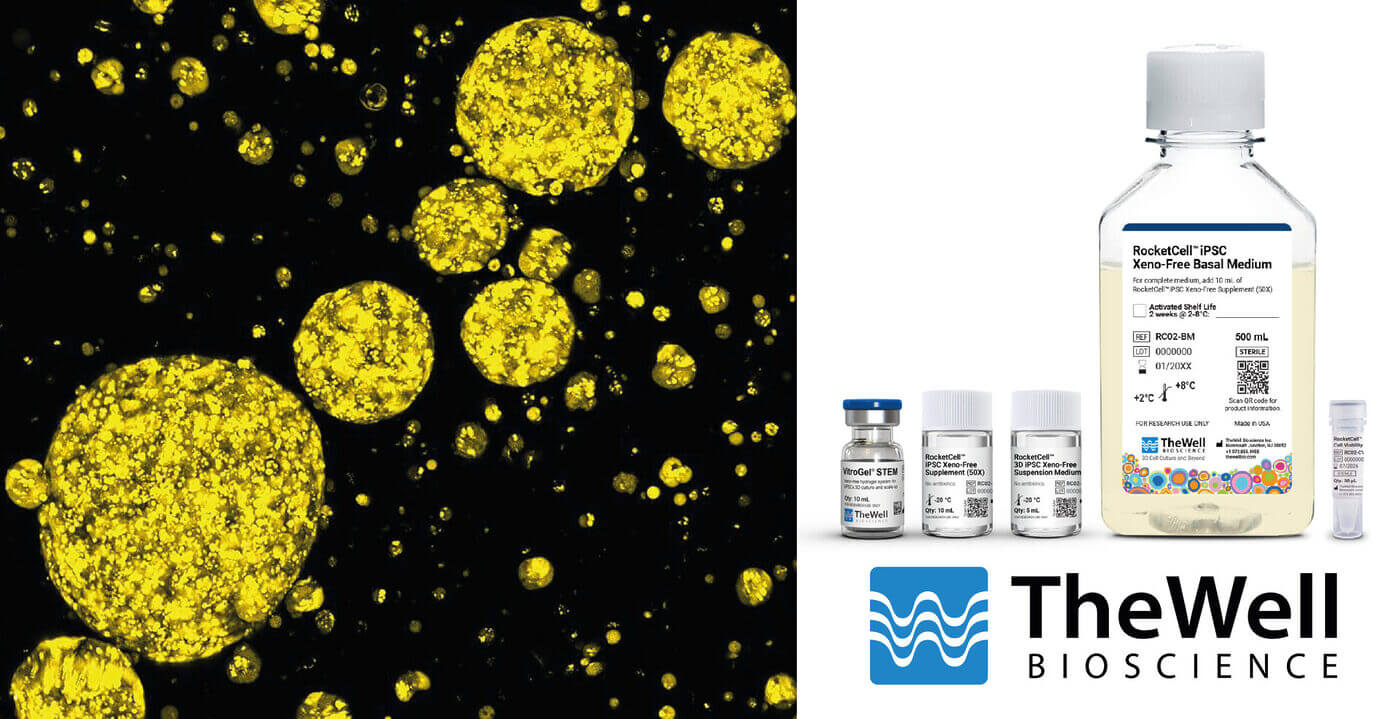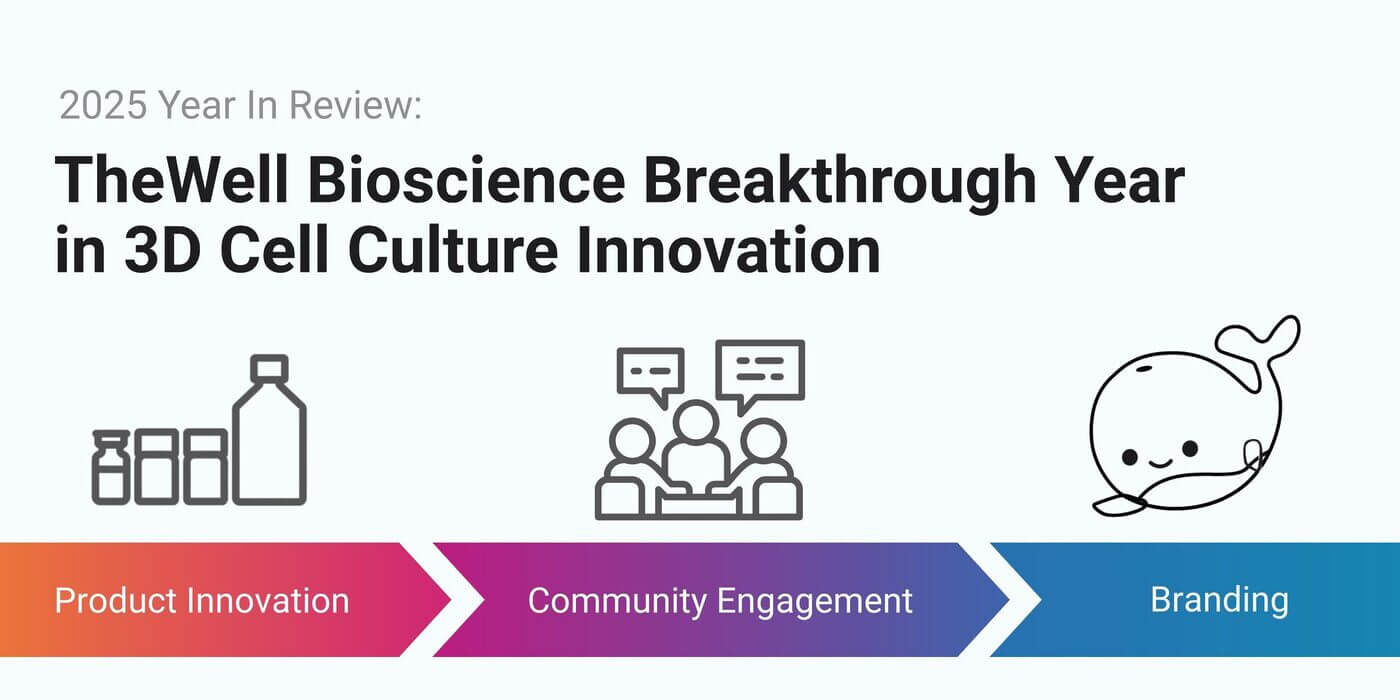Inside SLAS2026: Key Highlights, Connections, and Innovations SLAS2026 was an energizing week of scientific exchange, meaningful conversations, and hands-on demonstrations for the team at TheWell Bioscience. The event offered an invaluable opportunity to connect with researchers and partners, explore the evolving needs in automated 3D cell culture and organoid research, and showcase how TheWell’s innovative […]
Author Archives: Kyra Baricaua
Learn how an integrated, xeno-free platform with optimized matrix, medium, and reagents can accelerate your path to reproducible, clinically aligned 3D iPSC models. Induced pluripotent stem cells (iPSCs) provide a powerful foundation for disease modeling, organoid development, and cell therapy applications. However, most iPSC research is still performed in two-dimensional (2D) systems that fail to […]
A new in-plate, zero-disruption design enables reproducible organoid culture, downstream processing, and high-resolution imaging in a single 3D cell culture plate Monmouth Junction, NJ — February 9, 2026 — TheWell Bioscience today announced the launch of the VitroPrime™ 3D Culture and Imaging Plate, a next-generation 3D cell culture plate engineered to support organoid and advanced […]
VitroGel® enables precise modeling of breast tissue stiffness to study how anti-progestin therapy suppresses cancer cells. Breast cancer remains the leading cause of cancer-related death in women worldwide. A key risk factor in breast cancer development is partly attributed to high mammographic density, which is not only visible on mammograms but is also driven by […]
Advancing Automated 3D Cell Culture with an End-to-End Xeno-Free Platform at SLAS 2026! TheWell Bioscience will attend SLAS 2026 (Society for Laboratory Automation and Screening), the premier international conference and exhibition for laboratory automation, screening, and life sciences innovation, taking place February 9–11, 2026, at the Thomas Michael Menino Convention & Exhibition Center (MCEC) in […]
Monmouth Junction, NJ – January 14, 2026 – TheWell Bioscience is proud to announce the commercial launch of its new RocketCell™ product line, introducing two cutting-edge solutions for stem cell research: the RocketCell™ 3D iPSC Xeno-Free Complete Growth Kit and the RocketCell™ iPSC Xeno-Free Growth Medium. These products are engineered to resolve critical bottlenecks in […]
Monmouth Junction, NJ and Tokyo, Japan — January 7, 2026 — TheWell Bioscience Inc., a biotechnology company pioneering next-generation animal-free biofunctional hydrogels, and PeptiGrowth Inc., a leader in innovative synthetic peptide growth factors, today announced that the two companies have entered into a Marketing Collaboration Agreement to jointly promote cutting-edge solutions for stem cell culture, […]
Xeno-free VitroGel® system provides a physiologically relevant platform for breast organoid culture to support breast cancer prevention research. Bruno M. Simões, Ph.D., of the Division of Cancer Sciences, Breast Biology Group at The University of Manchester, will present his team’s recent Nature publication entitled “Anti-Progestin Therapy Targets Hallmarks of Breast Cancer Risk.” Luminal progenitor (LP) […]
TheWell Bioscience 2025: A Breakthrough Year in 3D Cell Culture Innovation 2025 was a transformative year for TheWell Bioscience, marked by strong execution across innovation, market expansion, and community engagement. Through pioneering product launches, we established the industry’s most comprehensive end-to-end xeno-free 3D cell culture platform—positioning the company for sustained growth in advanced translational research […]
There is no excerpt because this is a protected post.

